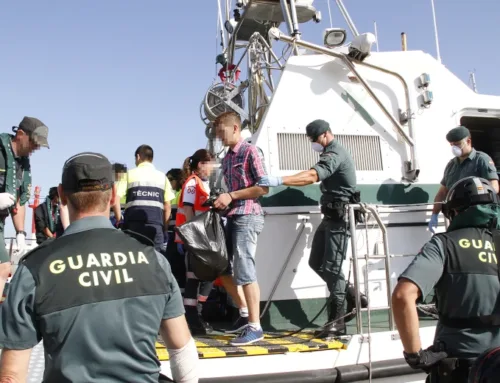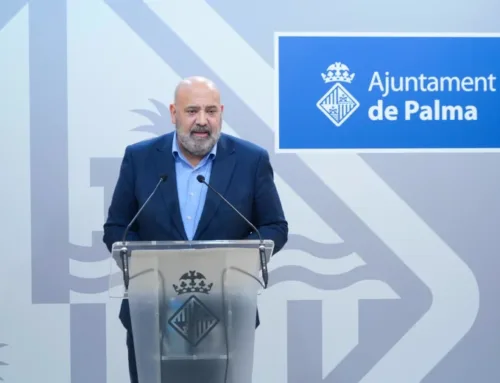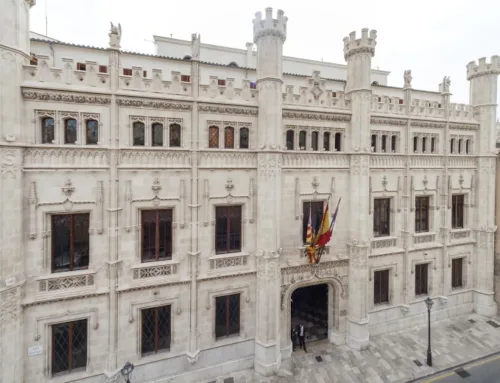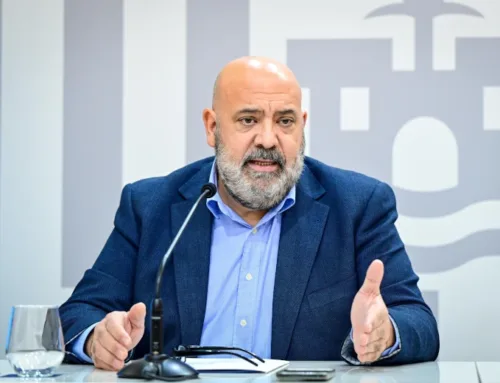The Popular Party has won the 9 June European Elections 2024 in the Balearic Islands with a total of 113,896 votes, which represents 35.78 percent of support in the islands. The second most voted political force in the archipelago has been the Spanish Socialist Party, with 91,995 votes (28.90%), while in third position has been Vox with 35,649 votes (11.20%). The Citizens’ Group “Se acabó la fiesta”, led by Luis ‘Alvise’ Pérez, has burst onto the political scene of the archipelago with 17,057 votes (5.35%), placing itself in fourth place ahead of Ara Més-Ara Repúbliques, which obtained 16,457 votes (5.17%); Sumar, which also presented itself for the first time in the European elections in the islands and received 13,871 votes (4.35%); and Podemos, with 10,005 (3.14%).

Marga Prohens embraces Rosa Estaràs after learning the results of the 2024 European Elections. Photo: Popular Party.
By islands, the PP has emerged victorious in Mallorca, with 90,931 votes (35.69%), Menorca, with 9,630 votes (33.65%), and Eivissa, with 12,719 votes (38.82%), while the PSOE has won in Formentera with 742 votes (35.35%).
These results, with 99.88% of the votes counted, signify a turnaround compared to the previous European Elections held in 2019, where the PSIB-PSOE emerged victorious in the Balearic Islands. The Popular Party is the political force that records the greatest increase in the number of votes with a rise of 14.61 points, that is, 25,464 more votes, while the socialists fall 0.44 points, resulting in the loss of a total of 30,537 supports. Meanwhile, Vox rises 3.55 points (+3,666 votes); Ara Més-Ara Repúbliques grows by 0.27 points (despite losing 4,007 voters); and Podemos collapses as it falls 7.35 points (-33,836).
With an abstention rate of 60.91%, 12.43% less than in 2019, the Balearic Islands have become the Autonomous Community with the lowest turnout in the entire country, ahead of the Canary Islands (59.3%) and Catalonia (56.4%). It is only surpassed by the high abstention of the Autonomous Cities of Ceuta (67.3%) and Melilla (66.8%).
Lastly, blank votes in the Balearic archipelago decrease by 0.63% (from 1.33% to 0.70% of the total ballots cast) and null votes decrease by 0.52% (from 1.07% to 0.55%).
For more information, click here.
Satisfaction in the Balearic Popular Party
“It is confirmed that the Popular Party brings the sole voice of the islands to the European Parliament with Rosa Estaràs,” pointed out the president of the PP, Marga Prohens. Thus, the also president of the Balearic Government has explained that “the citizens of the Balearic Islands validate the policies of the Government, of the councils and municipalities and renew their trust in the Balearic PP” and has added that “the citizens of the Balearic Islands have sent a very clear message against the way of doing politics of division, of tension, and of the mud of the PSOE“.
The Popular candidate, Rosa Estaràs, has thanked the trust placed in the Popular Party and has committed to working “for everyone, whether they have voted for us or not”. “The citizens have said yes to democracy, to equality, and to the rule of law, values that the PP has always defended and will defend,” Estaràs concluded.
On the other hand, the Secretary of Organization and electoral coordinator of the PSIB-PSOE, Cosme Bonet, has pointed out that “the results are practically identical to those obtained in the previous European elections, so it is clear that at this moment the only barrier against the far right is the PSIB-PSOE”. In addition, Bonet has emphasized that “the Socialist Party has stopped the wave of the far right and the PP, which proposed this electoral call as a plebiscite on the continuity of the progressive Government (of Spain) led by Pedro Sánchez, has clearly been defeated in this plebiscite, because from the result it cannot be inferred in any way that there is a majority will for change led by the PP“.






Leave A Comment